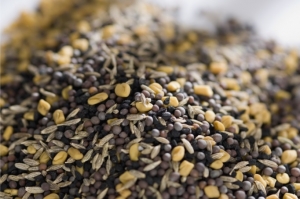Nerve pain, often referred to as neuropathic pain, is a condition many face due to nerve damage or dysfunction. While medications can provide relief, some individuals prefer a natural, holistic approach to managing their symptoms.
This article explores the causes and symptoms of nerve pain and highlights lifestyle-focused strategies for holistic nerve pain relief.
What Is Nerve Pain?
Nerve pain occurs when the nervous system—whether it's the brain, spinal cord, or peripheral nerves—is damaged or malfunctioning. It can range from short-term (acute) to long-term (chronic) and feels distinct from other types of pain.
Many describe it as shooting, stabbing, or burning sensations, which can interfere with daily life.
Common Symptoms of Nerve Pain
People experiencing nerve pain may notice a range of uncomfortable and often debilitating sensations that vary in intensity and frequency.
These include:
- Shooting or stabbing sensations: Sudden, sharp pains that feel as though they're coming from deep within the affected area.
- Burning or tingling feelings: A persistent, fiery sensation or a prickling feeling, often likened to the sensation of a limb "falling asleep."
- Pins and needles: A common symptom that creates a sensation of tiny pricks or jabs, typically in the hands, feet, or extremities.
- Electric shock-like pain: Jolts of pain that can feel as if an electric current is passing through the body, often triggered by movement or touch.
- Sensitivity to touch (allodynia): Pain from stimuli that would not normally cause discomfort, such as a light brush against the skin or wearing clothing.
- Unprovoked pain (spontaneous pain): Pain that occurs without any clear cause or trigger, making it unpredictable and challenging to manage.
Common Causes of Nerve Pain
Several factors contribute to nerve pain, including:
- Diabetes
Uncontrolled blood sugar levels can damage nerves over time, leading to diabetic neuropathy. This condition is a common cause of chronic nerve pain, particularly in the hands and feet, and can worsen without proper blood sugar management.
- Injury or Surgery
Physical trauma, such as fractures, sprains, or surgical procedures, can harm peripheral nerves. This damage may result in long-term discomfort or pain, especially if the nerves are pinched, crushed, or compressed during the injury or healing process.
- Viral Infections
Certain viral infections, such as shingles, chickenpox, or herpes, can inflame the nervous system and lead to nerve pain. These infections may leave lasting effects, with pain persisting even after the infection has cleared.
Vaccinations can often help prevent some of these conditions.
Natural and Holistic Approaches for Nerve Pain Relief
For those seeking alternatives to medication, these lifestyle changes can promote holistic nerve pain relief:
1. Dietary Adjustments
Maintaining a diet that stabilizes blood sugar levels can help prevent or reduce nerve pain, particularly for individuals with diabetes. Foods rich in fiber, such as whole grains, vegetables, and legumes, and those low in simple carbohydrates, are ideal for avoiding blood sugar spikes.
Limiting or eliminating sweets, sugary beverages, and processed snacks further supports nerve health and overall well-being.
2. Quitting Smoking
Smoking constricts blood vessels and reduces oxygen flow to the nerves, which can worsen existing symptoms and slow down recovery.
Over time, quitting smoking improves circulation, enhances nerve health, and reduces the risk of further nerve damage. It also supports better overall health, making it a critical step for long-term relief.
3. Relaxation Techniques
Stress can exacerbate nerve pain, so incorporating practices like meditation, yoga, and deep breathing exercises can be highly effective for managing both stress and discomfort. Gentle stretching and posture-focused activities, such as tai chi, offer physical relief while also improving mental well-being.
4. Regular Exercise
Engaging in physical activity strengthens muscles, reduces nerve pressure, and helps prevent conditions like diabetes, which often contribute to neuropathy. Activities such as walking, swimming, or cycling are excellent low-impact options that improve circulation and nerve function.
Consistent exercise also boosts mood and overall health, making it a valuable part of any nerve pain relief strategy.
A Holistic Approach to Managing Nerve Pain
Managing nerve pain naturally means improving overall health through lifestyle changes such as adopting a healthy diet, engaging in regular exercise, and reducing stress. These holistic nerve pain relief methods address symptoms while enhancing well-being and minimizing reliance on medication and its potential risks.
Taking a proactive approach can empower individuals to lead a healthier, more comfortable life.
Sources:
- https://www.webmd.com/pain-management/ss/slideshow-neuropathy
- https://www.healthline.com/health/peripheral-neuropathy-natural-treatments
- https://www.medicalnewstoday.com/articles/324572
- https://www.webmd.com/pain-management/nonprescription-treatments-nerve-pain






